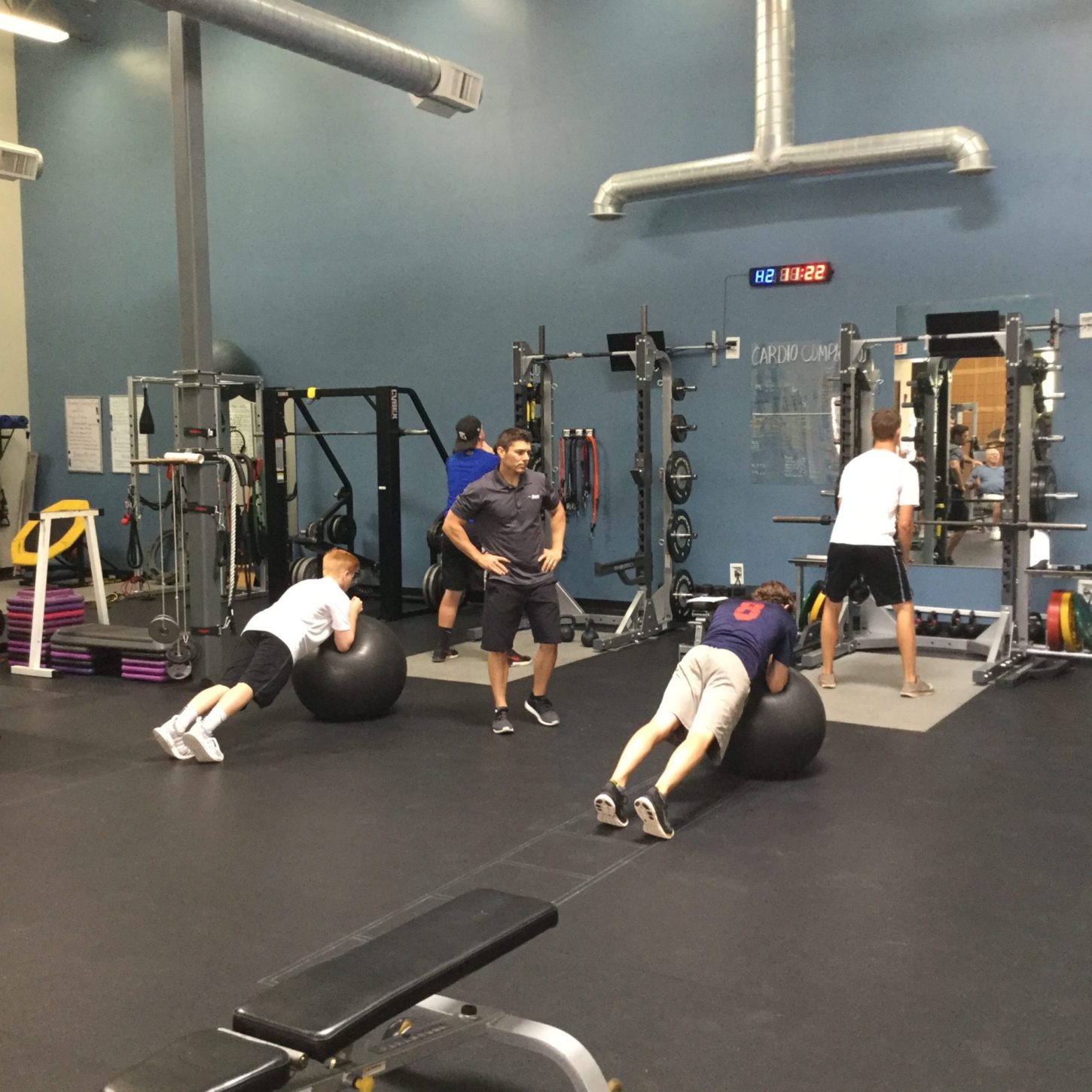The Right Start
Appropriately designed strength and conditioning programs for kids are not only safe and effective, but are now recommended by the exercise science community according to research presented in the October 2016 issue of American College of Sports Medicine's Health and Fitness Journal. This critical look at the effectiveness and usefulness of weight training for kids is very important as it helps to ease the traditional fears and misinformation about this type of training for kids.
There is no question that a child has unique needs that must be addressed when it comes to their participation in a weight training program, however this form of physical activity has shown to be highly effective at improving muscular strength, endurance, power, and the development of neuro-muscular connections. Programs that are supervised by skilled instructors enhance the training experience by fostering an environment that promotes having fun, learning new physical skills, and allowing for socialization.
In the years leading up to this shift towards the promotion of age appropriate strength training for kids several observations have been made highlighting the general de-conditioning of many young people due to a lack of participation in functionally sound movement based activities. These findings stress just how important it is for young people to get back to moving more frequently. Additionally, and maybe just as important, it has furthered the understanding of the mechanisms behind positive physical adaptations brought on through proper participation in physical activity programs. These benefits include, but are certainly not limited to enhanced sports specific skills and life-long physical independence. The vast body of research shows that if muscular fitness and functional movement patters are not developed early in life the chances of that individual participating as an adult in any type of physical fitness activity will be diminished. Furthermore, when they do participate the lack or requisite motor control, muscular strength and joint integrity predisposes them to various musculoskeletal injury.
Body Technologies' strength and conditioning program follows the guidelines set for by the American College of Sports Medicine in its position paper on strength training for children and adolescents. Providing a safe training environment that fosters the needs of the youth client including physical and emotional needs, allows for effective training outcomes. Our instruction includes immediate feedback during exercises so the participant can learn proper form and technique. This is critical in our philosophy as it follows the logic that although the child is engaged in the work today we are building a solid foundation for them to take further advantage of muscular strength development in the future as they mature. This evidenced-based progressive program is optimized for the individual, carefully developing their understanding and confidence in weight training exercises to minimize the possibility of missteps.
By using these guidelines it allows us to work with beginners as well as more advanced youth clients. Depending on the skill level and readiness to train our program allows for a shift in mode, frequency, duration, and intensity to suit the needs of the individual. Although these are the keys to the physiological development of the participant it is important to us to include creativity, enjoyment, socialization as well as professional supervision to round out the client experience at Body Technologies. Youth strength training is here to stay and in a time where opportunities for our youth to engage in safe, effective, age appropriate programs are greatly needed Body Technologies will be here for you.
Myth 1: Resistance training will stunt the growth of my child.
No evidence supports this notion, in fact it may be more beneficial to start early so the porgressive overload strategies can enhance bone mineral density and joint integrity.
Myth 2: Resistance training is unsafe for my child.
Participation in strength training poses no additional risks seen in any other organized sport activities. Although accidents do happen this highlights the need for qualified supervision during weight training workouts. Focusing on form and technique along with proper education greatly enhances the experience.
Myth 3: Youth need to be at least 12 years old to lift weights.
Although it is accepted that when you are ready to enter into other sport programs you should be able to join in weight training each participant must be able to accept guidence and follow the instructors lead. Children as young as 7 have successfully participated in various types of strength programs.
Myth 4: Girls will develop bulky muscles if they lift weights.
Muscular development does not follow in step with strength and endurance. Most adaptations seen during a strength program don't involve getting bigger they center around the neuromuscular adaptations as well as improved skill and coordination. Boys will develop muscles in line with their natural hormonal makeup as they enter puberty and continue on their growth pattern.
Myth 5: Resistance training is only for youth athletes
The benefits of any and all physical activity are indisputable, from improved metabolic function, muscular fitness, and weight management. Strength training may be the answer for your child regardless of their interest in sports due to the noticeable physiological adaptations shown in the literature today.

